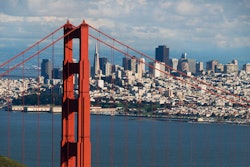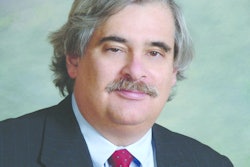If New York's health board approves the ban sponsored by Mayor Michael Bloomberg, restaurants, movie theaters and sporting venues would not be allowed to sell regular soda and other sugar-sweetened beverages in sizes larger than 16 ounces.
McDonald's and Coca-Cola slammed the proposal, saying they trust their customers to make decisions about their diets. Industry and health groups disagree on the contribution of soda to the fact that 70 percent of US adults are overweight or obese.
An analyst at the Center for Consumer Freedom called the proposal insulting and paternalistic. But Michael Jacobson, director of the Center for Science in the Public Interest, said in a statement that Bloomberg's move "is the boldest effort yet to prevent obesity."
"New York City's health department deserves tremendous credit for recognizing the harm that sugary soft drinks cause in the form of obesity, diabetes, and heart disease -- and for doing something about it," Jacobson said. "We hope other city and state public health officials adopt similar curbs on serving sizes and reducing Americans' exposure to these nutritionally worthless products."
The Post-Dispatch asked local health and government leaders to weigh in on the large-soda ban, and whether it would work here:
Dr. Dolores Gunn, director of the St. Louis County Department of Health said: "I think an education campaign would be a more effective way to address obesity in the St. Louis region. Although I find Mayor Bloomberg's move well-intentioned, it must be remembered that every place is different. What works in one community doesn't necessarily work in another, and I'm not sure a public health program like the mayor's would be all that effective here."
Beth Piper, dietitian, Cardinal Glennon Children's Medical Center said: "A ban on soda sizes is trying to use a single approach to a multifaceted problem. The obesity problem is huge and needs attention, but is going to need a comprehensive integrated approach over an extended time period. Families have to learn and want to make healthier choices in both food and exercise and have the resources to do so, and companies who promote inappropriately sized choices should have some consequences for doing so."
Dr. Kenneth Poole, Mercy Clinic Internal Medicine, Clayton said, I do not think that some sort of restriction on sugary drinks -- whether in this form or another -- is a bad idea.
"At the root of Mayor Bloomberg's ban is a push for portion control, which no one can effectively refute as a good thing in terms of health.
"I would gladly welcome such change here in the St. Louis area. Much like smoking restrictions, this ban could be another step towards a healthier society, and I therefore applaud at least the idea and discussion of such."
St. Louis Mayor Francis Slay said: "I have no plan to suggest such a ban in the city. I don't drink sugared drinks, but if you do, you'll have to be responsible enough to choose a reasonable portion."
Pamela Rice Walker, director of St. Louis Department of Health said: "There is a certain amount of personal responsibility relating to obesity, and part of government's job is to educate the public about behaviors and products that contribute to the problem. Mandatory product labeling is an effective means of informing the public what they are actually consuming, as is voluntary compliance by industry to eliminate obesity-contributing promotional items. Governmental bans of these products are expensive to enforce at a time when public health resources are extremely limited."
Source: St. Louis Post-Dispatch


















